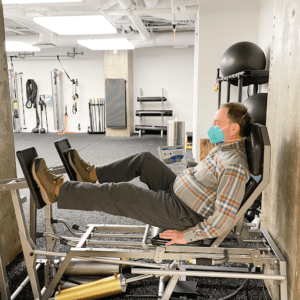Normal age-related physical and cognitive changes occur in our bodies as we get older. Examples include decreased muscle mass and fiber size and decreased performance involving cognitive tasks and functions.
These changes are all a part of life. Although we cannot stop them from occurring, the research demonstrates that it’s possible to slow down these age-related changes with something as simple as resistance training. Even better news is it is never too late to start! Significant increases in functional performance can be achieved even at elderly ages of >90 years old [1]. This means that it’s never too late to start exercising!


Here are some benefits of resistance training and exercise for older adults:
- Resistance training can have positive effects on executive function and global cognitive function of the elderly [2].
- Resistance training can help improve overall strength and balance which in turns helps to prevent falls, and improve functional mobility [1].
- Resistance training slows down normal age-related changes such as sarcopenia (decrease in muscle mass) [1].
Main take away:
It’s completely safe for older adults to pick up some weights. There are so many benefits to exercise, not only physically but also cognitively and mentally.
However, it is important that the exercise is appropriately prescribed in terms of what to do and frequency. If you do not have experience with exercise programming and want to get started, you can reach out to one of our physical therapists at SetPT. We will help you reach your goals and help you stay young!
Sources:
- Papa, E. V., Dong, X., & Hassan, M. (2017). Resistance training for activity limitations in older adults with skeletal muscle function deficits: a systematic review. Clinical Interventions in Aging, Volume 12, 955–961. https://doi.org/10.2147/cia.s104674
- Li, Z., Peng, X., Xiang, W., Han, J., & Li, K. (2018). The effect of resistance training on cognitive function in the older adults: a systematic review of randomized clinical trials. Aging Clinical and Experimental Research, 30(11), 1259–1273. https://doi.org/10.1007/s40520-018-0998-6





